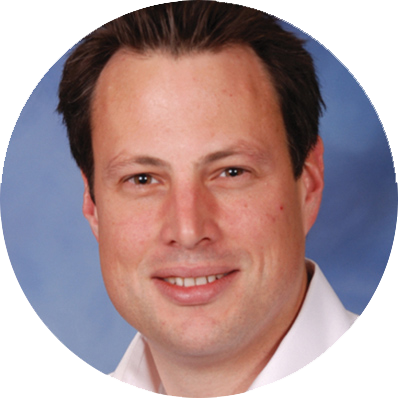Cambridge Healthtech Institute’s Inaugural
Bioproduction: Scale, Bioreactors & Disposables
Making It Work
21-22 March 2018 | Sheraton Lisboa Hotel & Spa | Lisbon, Portugal
The inaugural Bioproduction conference examines biologics production, including scale-down models, scaling up production, engineering bioreactors, single-use systems, and ensuring quality, within the context of increasing productivity. A holistic review of bioprocessing will be explored, as well as practical details, such as monitoring and analyzing processes, and looking in-depth into how bioreactors process cells. The conference will address robust manufacturing processes and next-generation technologies, while improving manufacturing platforms and ensuring product quality.
Final Agenda
Download Brochure
Wednesday, 21 MARCH
10:00 Registration and Morning Coffee
10:30 Coffee Break in the Exhibit Hall with Poster Viewing
11:15 Chairperson’s Remarks
Manuel Carrondo, PhD, Professor of Chemical and Biochemical Engineering, FCT-UNL, Vice President, IBET
 11:20 Integrated Drug Substance-Drug Product Development for the Next Generation of Biologics
11:20 Integrated Drug Substance-Drug Product Development for the Next Generation of Biologics
Hitto Kaufmann, PhD, Global Head, BioPharmaceutics Development & Platform Innovation, Global R&D, Sanofi-Aventis
The rise of next generation biologics brings with it new challenges. This presentation will examine how bioprocessing departments are adapting to evolving and diverse biological pipelines and the role of innovation as a key driver to deliver superior medicines to patients. The convergence of CMC technologies will also be examined using examples from Sanofi where relevant.
 11:50 Next-Generation Processes, Technologies and Operations
11:50 Next-Generation Processes, Technologies and Operations
Michael Pohlscheidt, PhD, Site Head & Head of Operations, Solothurn Manufacturing Facility, Biogen
A critical step in meeting the demand of biologic production worldwide involves implementing disruptive manufacturing technologies, processes and capabilities. This talk will evaluate Biogen’s new manufacturing site in Switzerland, due to go online in 2019, including the new processes, operational models and technologies being adopted to drive value through innovation and deliver new medicines in areas such as Alzheimer’s.
12:20 Session Break
13:40 Chairperson’s Remarks
Jarka Glassey, PhD, Professor, Engineering, Newcastle University
KEYNOTE PRESENTATION:
 13:45 Current and Future Challenges in Developing and Producing Biopharmaceuticals
13:45 Current and Future Challenges in Developing and Producing Biopharmaceuticals
Jan Visser, PhD, Vice President, Process Development, Boehringer Ingelheim Pharma GmbH & Co. KG
The need to bring high-quality biopharmaceutical products to market quicker and more cost effectively is a key trend in biomanufacturing. This presentation will discuss the current challenges, technologies and strategies being adopted to meet this need using examples from the Boehringer Ingelheim development and manufacturing network.
14:15 Characterisation of Engineered CHO Cell Performance through Multivariate Data Analysis (MVDA) and Transcriptomics
 Philip Probert, PhD, Senior Upsteam Scientist, Biologics, The Centre for Process Innovation (CPI)
Philip Probert, PhD, Senior Upsteam Scientist, Biologics, The Centre for Process Innovation (CPI)
Genetic engineering of CHO cells is an important avenue to improving upstream processing yields. Identification of targets for engineering and assessment of performance, however, remains a challenge due to the complexity of molecular pathways and various confounding factors. We describe the implementation of transcriptomic and MVDA as a means to identify promising genetic targets and to critically assess edited cell performance. Refinement of this approach, in tandem with the development of ever larger data sets, will enable robust selection of gene edits and ultimately larger yields of higher quality product.
14:45 Liquid Engineering: CHO Cell Culture Performance Enhancement Using Small Molecules
 David James, PhD, Professor, Bioprocess Engineering, Chemical and Biological Engineering, and Director, Advanced Biomanufacturing Center, University of Sheffield
David James, PhD, Professor, Bioprocess Engineering, Chemical and Biological Engineering, and Director, Advanced Biomanufacturing Center, University of Sheffield
In contrast to genetic engineering of CHO cells to enhance their functional performance, bioactive small molecule (SM) additives are relatively simple to utilise. They can be screened, titrated, combined and deployed during culture with comparative ease. We describe the development of a medium to high-throughput platform that enables rapid quantitative assessment of SM additives as a tool to create bespoke media environments designed to engineer cell factory function for optimal manufacturing performance.
15:15 The Arc Concept – Simplifying Life with Intelligent Sensors and Wireless Communication
 Knut Georgy, Market Segment Manager, Process Analytics, Hamilton Bonaduz AG
Knut Georgy, Market Segment Manager, Process Analytics, Hamilton Bonaduz AG
Intelligent Arc sensors eliminate the need for external transmitters. The integrated micro-transmitter communicates directly with the process control system via 4-20 mA or a digital Modbus protocol. Now with the new ArcAir App the workload for operators can be reduced and transcription errors can be avoided. Live demo.
 15:30 Adherent Versus Suspension Bioreactors for Viral Therapeutics Production
15:30 Adherent Versus Suspension Bioreactors for Viral Therapeutics Production
Rolf G. Werner, Professor, Labor Dr. Merk & Kollegen
A number of host cells for propagation of viral vectors are adherent cell cultures, growing in FCS. There is a limitation in scale up for these cells in Cell Factory, micro carriers and in iCELLis 500. Alternatively viral vectors are propagated directly in suspension cells in serum free media, avoiding potential contamination with adventitious viruses, with unlimited scale up.
15:45 Refreshment Break in the Exhibit Hall with Poster Viewing
16:25 Hybrid Modeling and Intensified DoE Strategies Providing a Base for Efficient Implementation of the Quality by Design Approach in Biopharmaceutical Production
 Gerald Striedner, PhD, Associate Professor, Biotechnology, University of Natural Resources and Life Sciences, Vienna (BOKU)
Gerald Striedner, PhD, Associate Professor, Biotechnology, University of Natural Resources and Life Sciences, Vienna (BOKU)
Implementation of QbD is a challenging and cost intensive task gaining more and more importance in biopharmaceutical industry. However, there is a still ongoing discussion on which methods (wet-lab, experimental design, data analysis) should be used and which combinations thereof are most meaningful. We will present the concept of intensified DoE in fermentation processes and hybrid modeling approaches and how these strategies can contribute to QbD implementation.
16:55 Hybrid Metabolic Modelling in Upstream Process Development
 Inês A. Isidro, PhD, Scientist, Computational Biotechnology, Animal Cell Technology Unit, iBET - Instituto de Biologia Experimental e Tecnológica
Inês A. Isidro, PhD, Scientist, Computational Biotechnology, Animal Cell Technology Unit, iBET - Instituto de Biologia Experimental e Tecnológica
Hybrid models combine mechanistic descriptions with data-driven statistical models. They take advantage of (and complement) what is known about the system while also accounting for the effect of phenomena that are not fully understood. This talk will show how hybrid models can be leveraged to incorporate metabolic knowledge into upstream process development. Case studies will include culture media development for Pichia pastoris and bioprocess control of baby hamster kidney (BHK) cultures.
17:25 Predictive Modelling of Fed-Batch Monoclonal Antibody Production in CHO Cells for Scaling Up
 Elmar Heinzle, PhD, Professor, Biochemical Engineering, Saarland University
Elmar Heinzle, PhD, Professor, Biochemical Engineering, Saarland University
The acceleration of the development of cell culture processes for the production of biologicals like monoclonal antibodies is of great interest. It has significant impact on the development and on time-to-market of such products. We developed a procedure that allows the systematic development of predictive macroscopic models that are applicable for scale-up and optimization of fed-batch processes of interest.
17:55 End of Day
18:00 Dinner Short Course Registration
18:30 Dinner Short Course
18:00 – 21:00 Recommended Dinner Short Course*
SC3: At the Heart of PAT Lies the QBD Approach
The QbD Roadmap provides a conceptual structure for the development activities of the drug manufacturing process. Coming from the Target Product Profile and subsequent determination of the Critical Quality Attributes (CQAs), the criticality of the process parameters that might have an impact on the CQAs are assessed using risk analysis. Subsequently, the impact of the critical process parameters (CPPs) on the CQAs is typically evaluated using a combined Design of Experiment and Data-driven process modeling strategy.
Instructors:
Gerald Striedner, PhD, Associate Professor, Biotechnology, University of Natural Resources and Life Sciences (BOKU)
Moritz von Stosch, PhD, Senior Manager, Fermentation, GlaxoSmithKline Pharma GmbH
* Separate registration required. Dinner Included.
Thursday, 22 MARCH
8:00 Registration and Morning Coffee
8:25 Chairperson’s Remarks
Inês A. Isidro, PhD, Scientist, Computational Biotechnology, Animal Cell Technology Unit, iBET - Instituto de Biologia Experimental e Tecnológica
8:30 Manufacturing a Therapeutic Fab for High Concentrations - Filtration and Viscosity Challenges
 Marc Pompiati, Dipl.-Ing., Senior Scientist, Roche Diagnostics
Marc Pompiati, Dipl.-Ing., Senior Scientist, Roche Diagnostics
It is critical in the production of ophtalmological therapeutics from E. coli to formulate proteins at very high concentrations. The applicable volume into the eye is limited, therefore, high protein concentrations are common. One of the challenges we encountered during the process of concentrating a Fab were high viscosity and the Donnan effect. In this presentation, we will show our method for developing a novel clarification method of periplasmatic extract, and a suitable tangential flow filtration and concentration step.
9:00 Enabling Continuous Upstream Bioprocessing - Using Tunable Promoters and Model Based Control Tools
 Christoph Herwig, PhD, Professor, Biochemical Engineering, Institutes of Chemical, Environmental and Biological Engineering, ICEBE, Technical University of Vienna
Christoph Herwig, PhD, Professor, Biochemical Engineering, Institutes of Chemical, Environmental and Biological Engineering, ICEBE, Technical University of Vienna
Robust downstream processing needs a robust upstream process also. Only to prolong a culture by perfusion techniques, for example, does not necessarily lead to continuous bioprocessing. More importantly, steady-state conditions in terms of productivity and product quality are needed. This contribution focuses on tunable promoters allowing continuous processing without perfusion and reaching steady-state conditions in the induced state. We use mixed feed systems which need multiparametric model based control strategies to accomplish this task.
 9:30 Spray Drying - a Viable Alternative to Biopharmaceuticals?
9:30 Spray Drying - a Viable Alternative to Biopharmaceuticals?
 Marcio Temtem, Associate Director, PD & Pharmaceutical Development, Hovione SA
Marcio Temtem, Associate Director, PD & Pharmaceutical Development, Hovione SA
Spray drying is explained by the fact it is a scalable drying process suitable to convert liquid streams into dry powders with a broad range of properties. In this talk the authors will present examples of such processes and the advantages of spray drying over conventional technologies.
 9:45 On Demand Nutrient Feeding During Automated Cell Culture Processes
9:45 On Demand Nutrient Feeding During Automated Cell Culture Processes
 Paul Strand, Senior Applications Engineer, Engineering, Flownamics, Inc.
Paul Strand, Senior Applications Engineer, Engineering, Flownamics, Inc.
Automated bioreactor sampling enables real-time analysis of cell culture processes and automatically controlled feeding strategies. Decision-making logic programmed into the system ensures the validity of the results received from the analyzer prior to initiating feed and to control amount of feed to the reactors.
10:00 Streamlining mAb Platform Processes: Integrating Single-Use Adsorptive Filtration as a Unit Operation for Virus Clearance
 Anja Trapp, MSc, Scientist, Bioprocessing Technology & Innovation, Rentschler Biopharma SE
Anja Trapp, MSc, Scientist, Bioprocessing Technology & Innovation, Rentschler Biopharma SE
Our goal was to take the full advantage of positively charged depth filters by addressing the removal of process-related impurities and viral contaminants. Results of our extensive virus spiking studies demonstrate the capability of anion exchange (AEX) filtration as an adsorptive unit operation for virus removal. Charged single-use filters are an excellent alternative to AEX resins and adsorbers. Key process economic advantages include higher flow rates, reduced process time, disposability and lower buffer consumption while ensuring virus safety of two-column mAb processes.
10:30 Coffee Break in the Exhibit Hall with Last Chance for Poster Viewing
11:15 Accelerating Cell Culture Process Development with the Help of a 24-Well Miniature Bioreactor
 Frank Baganz, PhD, Senior Lecturer/Associate Professor, Biochemical Engineering, University College London (UCL)
Frank Baganz, PhD, Senior Lecturer/Associate Professor, Biochemical Engineering, University College London (UCL)
The need to bring new biopharmaceutical products to market more quickly and to reduce final manufacturing costs is driving early stage, small-scale bioprocess development. This presentation will cover the engineering characterisation of a single-use 24-well parallel miniature bioreactor (MBR) in terms of power input, liquid phase mixing and oxygen mass transfer. Examples will be given for the application of this MBR to rationally scale cell culture processes.
11:45 Bioreactor-Based Optimization and Scale-Up Issues for Large-Scale Manufacture with Suspension Culture of Animal Cells
 Maria Joao Wurm, PhD, CEO and Co-Founder, ExcellGene SA
Maria Joao Wurm, PhD, CEO and Co-Founder, ExcellGene SA
The biology of CHO cells or others is highly complex and poorly understood. Manufacturing processes need to be addressed from a chemical engineering perspective, but by far more challenging are biological issues, such as the diversity of physiology, genetics, and product quality requirements. This talk will focus on topics facing the scientist/engineer when the work at small scale is trying to establish a process to be scaled up into stainless steel, or more frequently now, into “disposable” bioreactors of different shapes and performance.
12:15 Impact of Bioreactor Design on Human Stem Cell Bioprocessing
 Margarida Serra, PhD, Senior Scientist, Cell Bioprocesses Laboratory, Health & Pharma Division, Animal Cell Technology Unit, iBET
Margarida Serra, PhD, Senior Scientist, Cell Bioprocesses Laboratory, Health & Pharma Division, Animal Cell Technology Unit, iBET
Human pluripotent and adult stem cells constitute an extremely attractive tool for cell therapy. However, flexible platforms for the large-scale production of these cells in tightly controlled conditions are necessary to deliver high quality cells in clinically relevant quantities. This presentation will focus the main principles for the bioprocessing of stem cells, highlighting the impact of environmental factors, novel 3-D culturing approaches and bioreactor design for controlling stem cell fate and culture outcome.
12:45 Luncheon Presentation (Sponsorship Opportunity Available) or Enjoy Lunch on Your Own
13:15 Session Break
13:45 Chairperson’s Remarks
Maria Joao Wurm, PhD, CEO and Co-Founder, ExcellGene SA
13:50 Developing Robust Scale-Down Models for Bioreactor Processes while Bridging the Gap between Single-Use and Stainless Steel Systems
 Ashley Witmer, Associate Director, Bioreactor Scale-Up and Development, Regeneron Pharmaceuticals
Ashley Witmer, Associate Director, Bioreactor Scale-Up and Development, Regeneron Pharmaceuticals
Combining traditional and novel scale-down approaches to characterize pilot bioreactors has resulted in enhanced process knowledge and better predictability of manufacturing scale performance for production of monoclonal antibodies. In addition to defining scale-up parameter setpoints for transfer, statistically-designed, pilot-scale studies applying Quality by Design principles are employed to bridge the gap between bioreactor types ensuring robust process performance across scales.
14:20 Bioprocess Development – Moving through the Scales with More Confidence
 Jarka Glassey, PhD, Professor, Engineering, Newcastle University
Jarka Glassey, PhD, Professor, Engineering, Newcastle University
Speed to market is essential in the biopharmaceutical sector, and while Quality by Design approaches marked progress in process and product understanding and more rapid and structured process development, scale-up still represents a significant challenge in introducing new biopharmaceuticals to market. This contribution will explore the use of scale-down models and the benefits of multivariate data analysis methods in combination with high-throughput/single-use technology to facilitate rapid bioprocess development.
14:50 Feedback on Single-Use Manufacturing and New Approach for Scale Transfer
 Flavien Thuet, MEng, CoE Team Leader, Operation, Merck Biodevelopment
Flavien Thuet, MEng, CoE Team Leader, Operation, Merck Biodevelopment
The aim of this presentation is to share feedback after 2 years of using large-scale single-use systems (SUS). First, the benefits offered by these systems will be discussed under an organizational/plant management perspective. As a case study, the Merck Biodevelopment GMP plant organization will be discussed. Then, recent results obtained at 2KL scale will be shared. The process involves a new challenging cell line, and the quality results obtained will be discussed.
15:20 Close of Conference
Download Brochure